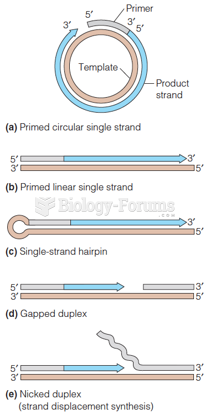|
|
|
If all the neurons in the human body were lined up, they would stretch more than 600 miles.
Blood is approximately twice as thick as water because of the cells and other components found in it.
Signs and symptoms of a drug overdose include losing consciousness, fever or sweating, breathing problems, abnormal pulse, and changes in skin color.
Though newer “smart” infusion pumps are increasingly becoming more sophisticated, they cannot prevent all programming and administration errors. Health care professionals that use smart infusion pumps must still practice the rights of medication administration and have other professionals double-check all high-risk infusions.
It is difficult to obtain enough calcium without consuming milk or other dairy foods.







